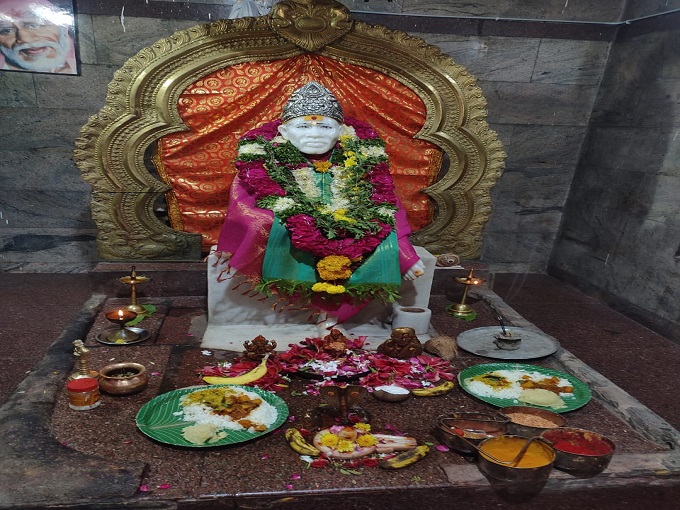







Sai Baba, an iconic spiritual figure in India, is believed to have been born in the late 18th century, though the exact date and details of his birth and early life are steeped in mystery. He arrived in Shirdi, a quiet village in Maharashtra, during the early 19th century and chose to make it his home. This marked the beginning of his spiritual journey, where he would go on to become one of the most revered saints in India.
Sai Baba's teachings were characterized by a profound sense of universal love and the belief in the unity of all religions. He encouraged people to rise above sectarian differences and view God as one, transcending the boundaries of faith. His humble and ascetic lifestyle, living in the Dwarkamai mosque, reflected his teachings on detachment from material possessions and the pursuit of inner spiritual growth. Sai Baba's emphasis on selfless service, kindness, and the oneness of all faiths continues to inspire generations of followers.
The stories of Sai Baba's miraculous powers are legendary. He was known for healing the sick, granting relief to the suffering, and multiplying food to feed the hungry. His devotees believed that he possessed divine powers, and his life was a testament to his teachings on compassion and service to humanity.
On October 15, 1918, Sai Baba's physical presence came to an end with his passing. However, his legacy lives on. Shirdi has since transformed into a significant pilgrimage site, drawing millions of devotees from diverse backgrounds who come to seek his blessings at the Sai Baba temple. His teachings and life story have been documented in numerous books and continue to inspire people not only in India but across the world. Sai Baba's remarkable impact on spirituality transcends time, and he remains an enduring symbol of love, unity, and the pursuit of inner peace.







